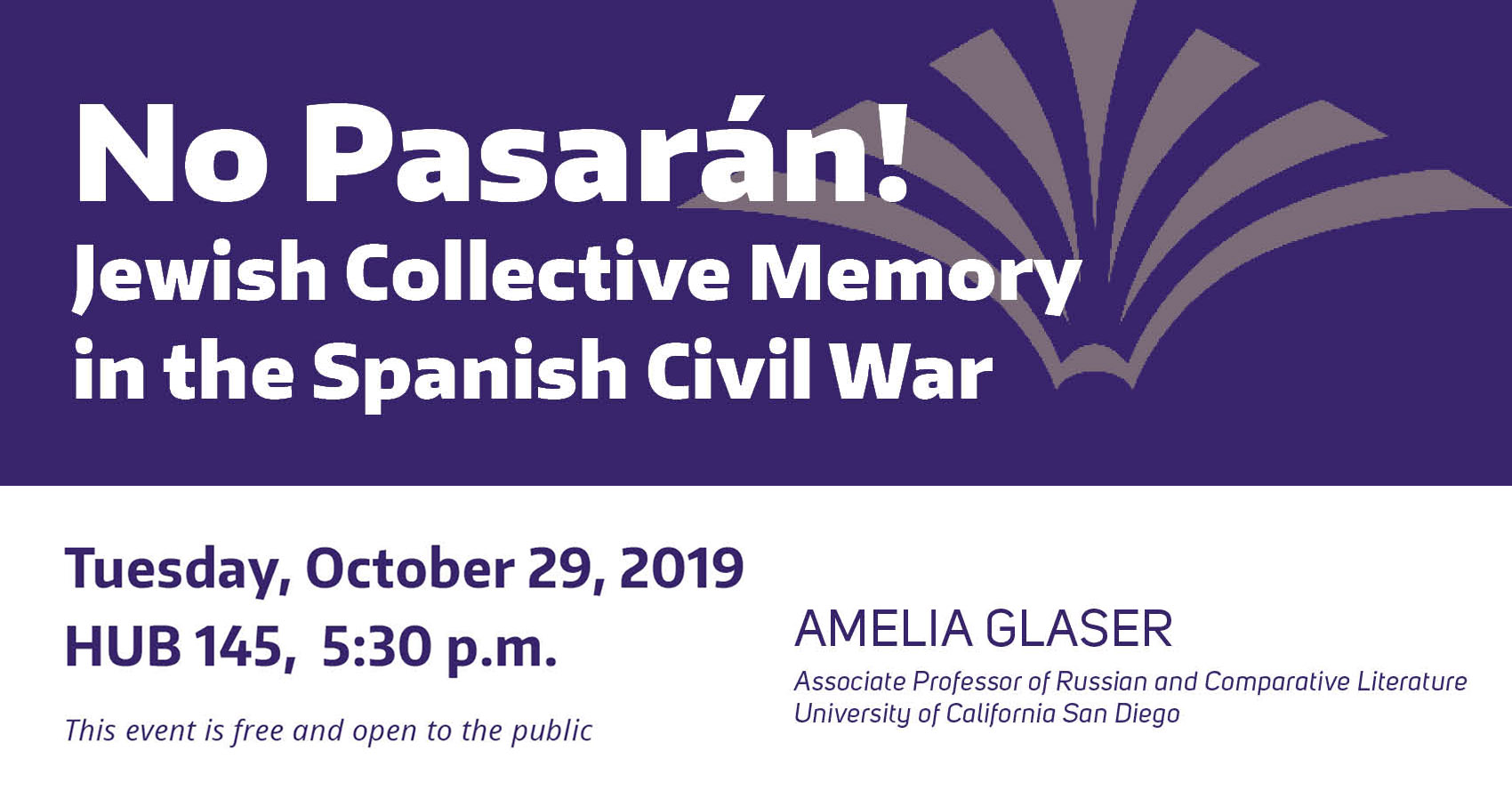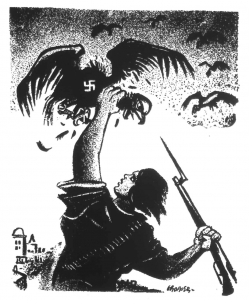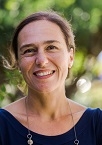

10/29 TALK | No Pasarán!: Jewish Collective Memory in the Spanish Civil War
Tuesday, October 29, 2019, 5:30 pm PDT - 6:50 pm PDT
Dr. Amelia Glaser of the University of California, San Diego, will speak about how three Jewish poets who wrote in Yiddish, Soviet Peretz Markish, American Aaron Kurtz, and Mexican poet Jacobo Glantz, addressed the fight against fascism in 1930s Spain, the massive participation by international volunteer soldiers, including many Jews, and the long, troubled history of Jews in Spain.
About this talk
“I am yet again your guest!,” wrote the Soviet Yiddish poet Peretz Markish in his 1936 poem, Spain, “The honor makes me sad!” The Spanish Civil War (1936-1938) united the anti-fascist left around the world. Jewish leftists, in particular, took the rallying cry of “No Pasarán” (“They must not pass”) to signify not only the necessity of the Spanish struggle against the monarchists, but a united struggle against Hitler, Franco, and Mussolini.

William Gropper, illustration in Jacobo Glantz, Fonen in blut [Bloodied Flags] (Mexico City: Gezbir, 1936)
About the speaker
 Amelia Glaser is Associate Professor of Russian and Comparative Literature at UC San Diego, where she also directs both the Russian, East European, and Eurasian Studies Program and the Jewish Studies Program. She is the author of Jews and Ukrainians in Russia’s Literary Borderlands (Northwestern U.P., 2012), the translator of Proletpen: America’s Rebel Yiddish Poets (U Wisconsin Press, 2005), and the editor of Stories of Khmelnytsky: Competing Literary Legacies of the 1648 Ukrainian Cossack Uprising (Stanford U.P., 2015). Her co-edited anthology, with Steven Lee, Comintern Aesthetics, is forthcoming next year with U. Toronto Press. She is currently completing her second monograph, provisionally titled Passwords: Yiddish Poetry in the Age of Internationalism.
Amelia Glaser is Associate Professor of Russian and Comparative Literature at UC San Diego, where she also directs both the Russian, East European, and Eurasian Studies Program and the Jewish Studies Program. She is the author of Jews and Ukrainians in Russia’s Literary Borderlands (Northwestern U.P., 2012), the translator of Proletpen: America’s Rebel Yiddish Poets (U Wisconsin Press, 2005), and the editor of Stories of Khmelnytsky: Competing Literary Legacies of the 1648 Ukrainian Cossack Uprising (Stanford U.P., 2015). Her co-edited anthology, with Steven Lee, Comintern Aesthetics, is forthcoming next year with U. Toronto Press. She is currently completing her second monograph, provisionally titled Passwords: Yiddish Poetry in the Age of Internationalism.
Glaser will also give a lunchtime talk on translation studies in the Simpson Center on October 29. For more information on that event, visit the Simpson Center’s calendar here.
This event is cosponsored by the departments of Spanish and Portuguese, Slavic Languages and Literatures, & the Translation Studies Hub initiative at the Simpson Center for the Humanities.
